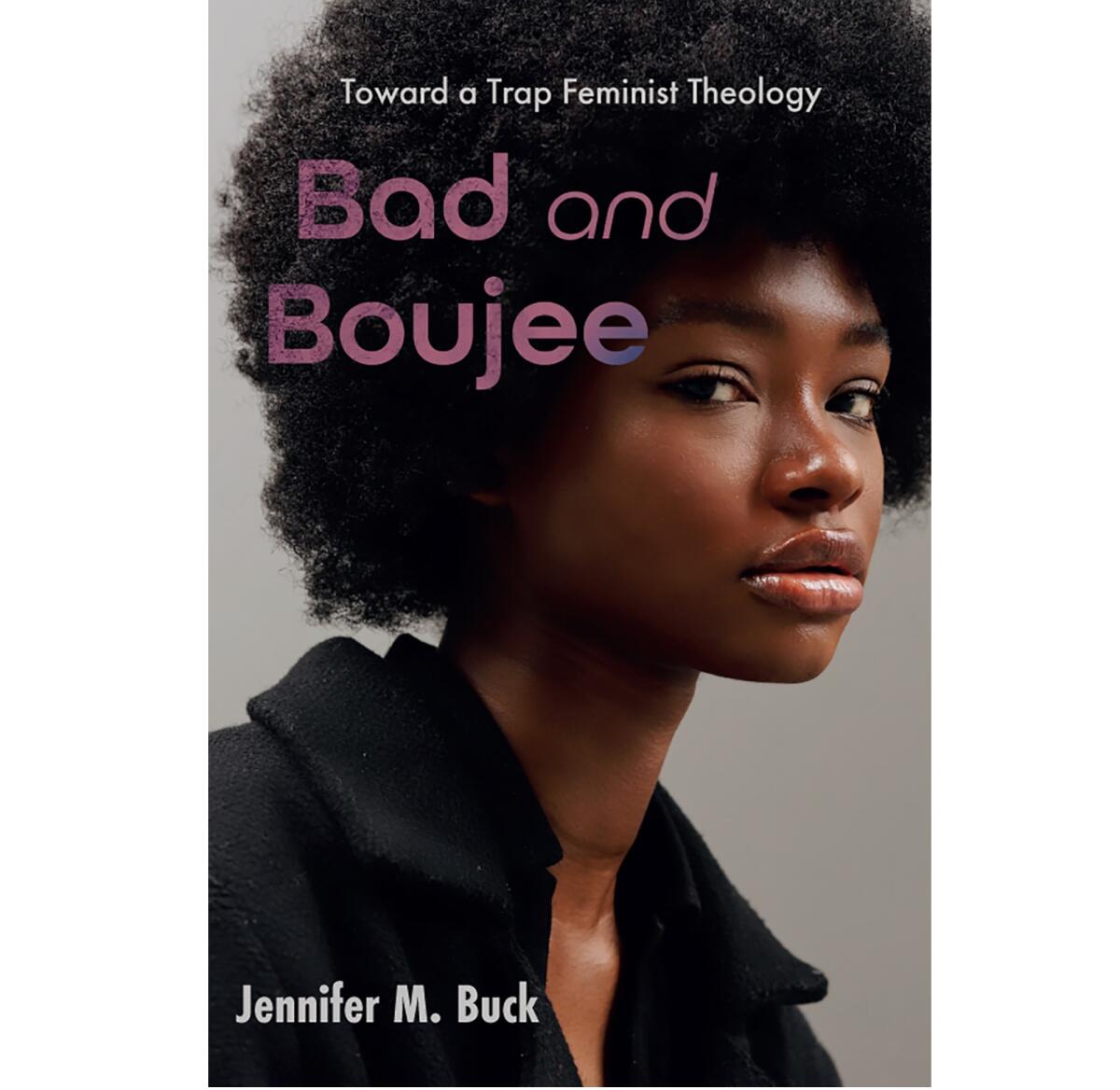After publisher pulls book by white professor on ‘trap feminism,’ founder speaks out

Last week, the publisher of “Bad and Boujee: Toward a Trap Feminist Theology” pulled it from distribution after critics raised concerns about the white author’s qualifications to write on the book’s stated topics of the “Black experience, hip-hop music, ethics, and feminism.”
Among those critics was author Sesali Bowen, who coined the concept of trap feminism years ago. At its core was how people attempt to celebrate Black women without talking about their lived experiences. Things like copying the aesthetics of musicians such as Cardi B and Megan Thee Stallion without giving them attribution or linking it to their lives.
Bowen says she wanted to emphasize these women because they are often talked about without ever being talked to.
So she was taken aback when earlier this year, white academic Jennifer Buck released a theology book on trap feminism. While Bowen first introduced the concept of trap feminism nearly a decade ago, she said Buck did not approach her while researching “Bad and Boujee.” The idea of talking about Black women, but not directly engaging with them about their lived experiences, gets to the core of why Bowen first felt the need to label this era and concept of trap feminism.
Bowen coined the term in 2014, taking its name from a hip-hop genre that originated in the South. “Trap” is slang for a house where drugs are sold and the music references street life, violence, poverty and many of the experiences Black people face in the South.
Buck is an associate professor of practical theology at Southern California’s Azusa Pacific University, a private, evangelical Christian college. Her book features a Black woman on the cover and throughout references the lived experiences of Black women, according to the book’s online description. She did not respond to The Times’ requests for comment on the fallout.
Bowen’s 2021 book “Bad Fat Black Girl: Notes from a Trap Feminist” summarizes the niche topic: “Trap feminism says that Black girls who have ever rocked bamboo earrings, dookie braids, Baby Phat, lace fronts, or those who have worked as hoes, scammers, call-center reps, at daycares, in retail, and those who sell waist trainers and mink lashes on Instagram are all worth the same dignity and respect we give Michelle Obama and Beyoncé.”
Bowen shared a recent exchange she had with Buck over Instagram.
After a few messages, Bowen wrote to Buck, “I think more than anything I would like to know what brought you to this research, why you thought you were the best person to do it, and why it’s not in conversation with folks who have been doing trap feminist work for years?”
She says she hasn’t heard back.
“I think I was just shocked at the lack of awareness, if you will. I think it was just disheartening,” Bowen told The Times about the whole ordeal.
Bowen has a master’s degree in gender studies from Georgia State University; she understands the process of academic research. She says if Buck had Googled “trap feminism,” her work would have come up. Instead, Buck cited Bowen’s work in a footnote in her book.
“I think the fact that Jennifer Buck does not have the lived experience that makes her the person to write about trap feminism or Black feminism is honestly just the salt in the wound,” Bowen said. “Now we’re also dealing with issues around cultural appropriation, culture vulturing and just kind of like cultural voyeurism that is just icky, you know. It’s just cringe and I hate that we are still doing this in 2022.”
In a separate Instagram exchange with Christian writer Jo Luehmann, Buck explained her research process.
“I did this research directly interviewing women running trap with a research team of primarily black women. Everyone was paid well — those who helped me conduct the research and those interviewed,” Buck wrote. “I will also add: I believe anti-racist work is the work of white people to do, which includes hiring and elevating black voices and all historically marginalized voices in doing theology.”
Author Chanequa Walker-Barnes joined a chorus of voices on Twitter decrying Buck’s approach to this topic within Black culture. One of Walker-Barnes’ first books was published by Wipf and Stock Publishers, a Christian publishing house, which also released “Bad and Boujee” this February.
“It’s not that White scholars can’t write about Black women, but it has to be done with extreme care, a whole lot of cultural sensitivity and humility, and in relationships of accountability with Black women,” Walker-Barnes wrote on Twitter. “And it would probably need a Black woman editor.”
Wipf and Stock announced on Friday that it would pull “Bad and Boujee” from distribution.
“We humbly acknowledge that we failed Black women in particular, and we take full responsibility for the numerous failures of judgment that led to this moment,” the publisher said in a statement. “Our critics are right: we should have seen numerous red flags, including but not limited to the inappropriateness of a White theologian writing about the experience of Black women (the issue of cultural appropriation is pervasive, from cover to content), the lack of Black endorsers, and the apparent lack of relationship with Black scholars, especially those who originated the trap feminist discourse.”
Bowen said Buck’s silence is the least trap feminist approach to this controversy.
“I want to call it kind of a psychological violence, if you will. Professor Buck starts this s—storm and then to just turn away from it,” Bowen said. “She has refused so far to engage in this conversation that she has started. That’s not what trap feminism is all about. Because a trap feminist can fight her battles, be accountable and hold people accountable.”
More to Read
Sign up for Essential California
The most important California stories and recommendations in your inbox every morning.
You may occasionally receive promotional content from the Los Angeles Times.











